Pitch Perfect 3 Review
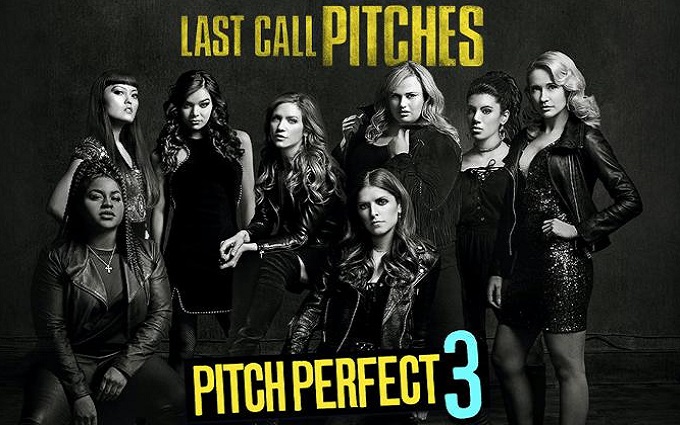
Pitch Perfect 3 Review
The Plot
Acapella singing superstars the Barden Bellas have grown up and grown apart, but a chance to reunite for one last chance to compete for musical glory on a European Tour might just put each of their individual lives back on track.
The Good
Pitch Perfect 3 will be a welcome return for those who have previously much enjoyed the Bellas’ endearingly daft musical shenanigans. Though the plot of this final chapter may feel like an obviously contrived excuse for a series of jaunty musical numbers, those acapella karaoke mashups are nonetheless still infectiously fun to watch.
Likewise the franchise’s astonishingly well assembled cast continues to pour a surprising amount of charm into otherwise one note characters. Anna Kendrick, Brittany Snow, Hailee Steinfeld, Anna Camp and Rebel Wilson are among the returning stars that shine yet again. Elizabeth Banks and John Michael Higgins also return to provide their usual scene stealing tongue in cheek commentary throughout proceedings.
Perhaps the biggest compliment that can be paid to Pitch Perfect 3 is that it seems entirely self-aware of the fact that it’s a final celebratory farewell tour nothing more. The plot of the film oddly mirrors real life, with plenty of in jokes about the need to move on and the inherent comedy of performers so unashamedly desperate for that final piece of the spotlight.
Luckily the film manages to resist the temptation to pull a Fast and The Furious style genre switch, utterly reimagining the characters or throwing them into too many implausibly new situations. This is perhaps the worst and most common crime of ill-advised sequels but thankfully Pitch Perfect 3 doesn’t quite fall into this trap, even if it does knowingly flirt with the idea during its opening scenes and later stages.
Overall a talented cast and the winning formula of slapstick humour, one liners and musical set pieces blends to form a pleasing harmony easily capable of raising a smile for 90 minutes.
The Bad
The original Pitch Perfect was a fun novelty act but didn’t obviously lend itself to sequels thanks to a largely self-contained plot that had been neatly brought to a close. Instead box office success and apparent audience enthusiasm swiftly prompted a follow up that made the most of a talented cast to squeeze even more musical comedy from the niche world of competitive acapella singing. Unfortunately for some audiences stretching the franchise now into a full blown trilogy may feel a little unnecessary and greedy.
For anyone who felt their enthusiasm damper by the end of the last sequel, this time may feel even more like a lazy repeat combined with at least one embarrassingly farfetched subplot. In particular the film comes dangerously close to ‘jumping the shark’ during its desperate efforts to inject action into its final act. Hollywood so often mistakes bigger for better and adding martial arts and explosions to acapella singing is never really a sensible idea.
Even if the final Bellas adventure does its very best to milk more laughs out of the increasingly familiar characters, it’s hard to entirely avoid feeling like you’re watching performers taking a superfluous curtain call after the applause has already started to fade out.
The Ugly Truth
Pitch Perfect 3 ends the unlikely trilogy of musical comedy on a mostly satisfying note giving fans of the series a final farewell performance. Stars like Anna Kendrick and Rebel Wilson have just enough musical and comedic appeal to make it feel like easy watching fun.
Review by Russell Nelson
Big Fish The Musical Review
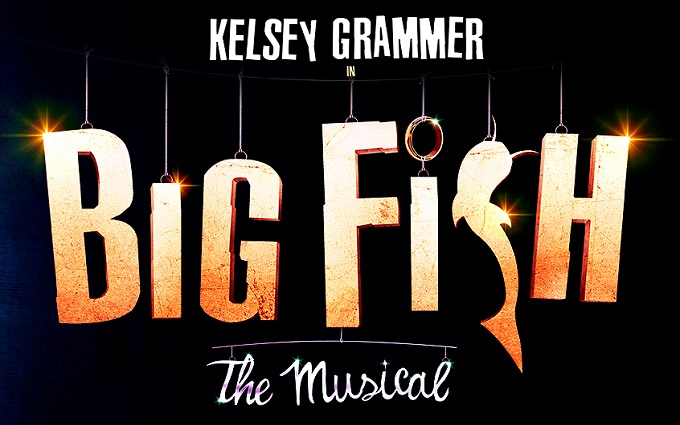
The Plot
Likeable charmer Edward Bloom is a romantic larger than life figure with a rare gift for storytelling, but as his son embarks on his own family life he struggles to separate fact from fantasy, hoping to figure out who his father really is beneath all his fantastical tales before it’s too late.
The Good
Frasier star Kelsey Grammer marks his west end debut with a pitch perfect performance as the affable older Edward Bloom. His deep charismatic voice, armed with a slight southern drawl is a perfect source of narration. He perfectly ties together the various strands of the story, intertwining fantasy and reality seamlessly as he sets the scene for the rest of the cast of young musical stars. It’s simply hard to imagine any actor better suited to the role as Grammer magnificently encapsulates the gruff bluster, flamboyant showmanship and poignant romanticism that makes Edward Bloom such an endearing hero.
Credit for the astonishing success of the show goes of course to the creative team and original author, but the impressively versatile cast deserve perhaps the biggest praise. Often playing multiple roles they make it easy for audiences to be swept away in the charming fantasy world of Edward Bloom. It would be unfair to single out individual cast members as each member of the well-chosen ensemble delivers flawless vocal and well-choreographed performances.
Perhaps the biggest compliment that can be paid to this new production is that it succeeds in adding new music and a fresh layer of charm to a much beloved and already familiar story. This new musical dimension lends itself perfectly to the oratory flare of Edward Bloom and his whimsical fables. While some of the songs inject added humour and playfulness, the show is at its absolute strongest when the music lends extra emotional weight to its more tender and heartfelt moments. Sincere well-crafted ballads massively amplifies the emotional impact of a story that deals with genuinely epic love, new beginnings and bittersweet endings. The show builds momentum steadily towards a truly tear stained and uplifting finale.
Aside from the poignant subtext of the show, what is perhaps most special and memorable is the unbridled sense of fun that the production offers delighted audiences. At times the production literally leaps out amongst the audience or drags them up on stage. It’s a fully immersive experience packed with all the very best that live theatre has to offer.
The Bad
Over familiarity with the original book and Tim Burton’s film adaptation will obviously rob this stage version of the element of surprise for some audiences. Particularly as most of the changes the musical makes to the story are simplifications to streamline proceedings for a more modest cast size. Likewise at times despite the innovative set design and costume work, it’s tough to entirely escape inevitable comparisons with the special effects infused magic of the big screen adaptation. Though the musical does the very best possible with minimal set dressings and a confined space, those that struggle to rely on the power of their own imaginations will occasionally notice those limitations. But this could be said of any live theatre and shouldn’t obscure the fact that this is a truly brilliant production.
The Ugly Truth
Big Fish is one of the most delightfully fun and poignant new musicals to grace a West End stage in quite some time. Capturing the very best of both the original book and the popular film adaptation the new musical version is a raucous crowd pleasing spectacle guaranteed to deliver laughs, smiles and more than a few tears. Make sure you don’t miss a golden opportunity to see this wondrous show in a magically intimate space, book your ticket today!
Review by Russell Nelson
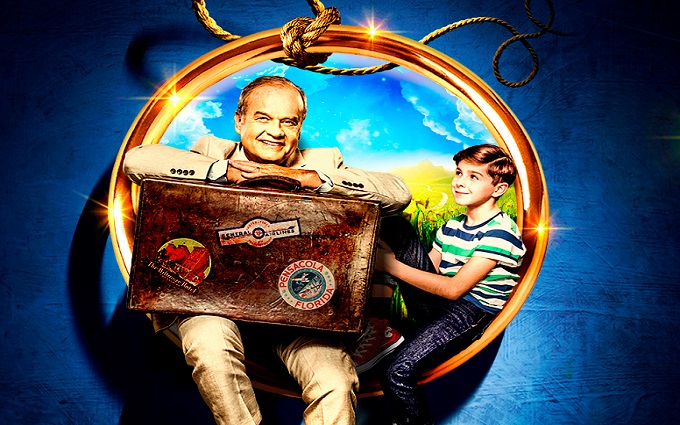
Darkest Hour Review TIFF 2017
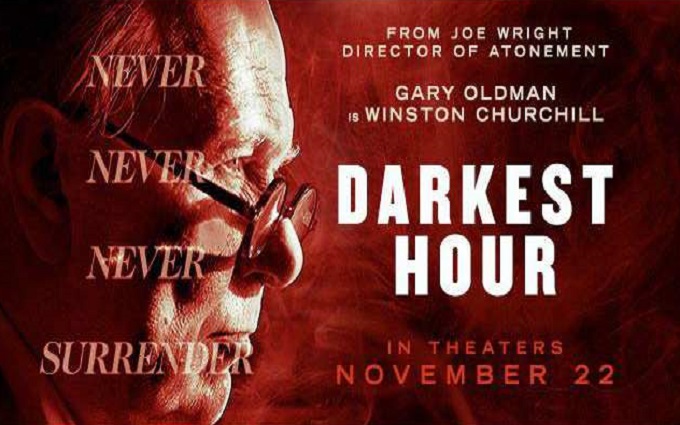
The Plot
As Western Europe teeters on the brink of collapse at the start of World War 2 popular political outsider Winston Churchill becomes the new British prime minister. During Britain’s darkest days Churchill must not only find a way to win over a reluctant political establishment but more importantly avoid total military destruction and inevitable Nazi invasion.
The Good
Gary Oldman reconfirms his long held status as one of the most versatile and compelling character actors with a performance that outshines even his elaborate physical transformation. Thanks to some flawless makeup and prosthetics wizardry Oldman is physically unrecognisable, literally becoming the iconic British leader. However what’s most impressive is how even underneath copious layers of makeup and bodysuits Oldman is able to deliver a subtle portrayal that goes well beyond Churchill’s jowl shaking oratorical skills.
Around Oldman director Joe Wright has assembled a fine cast of character actors who breathe further life into the tense political landscape of Britain on the brink in 1940. Ben Mendelsohn deserves special note for his portrayal of King George VI, a daunting prospect in the wake of Colin Firths Oscar winning version.
Director Joe Wright manages to create a sense of momentum and carefully crafts the full weight of historic significance resting on Churchill and Britain’s shoulders during these most perilous moment sin world history. Much like recent crowd pleasers Dunkirk and Their Finest, Darkest Hour is innately imbued with a swell of pride that lingers still today from the immeasurable bravery and idealism demonstrated by a small island nation that stood utterly alone against evil.
The Bad
Anyone with even a most basic grasp of 20th century history already knows the ultimate outcome of the Second World War and Churchill’s personal destiny as one of the most iconic leaders in modern history. In particular Christopher Nolan’s recent blockbuster reminder of the miraculous Dunkirk evacuation is also still overly fresh in people’s minds. The inevitability of Churchill’s success and Britain’s military survival essentially robs the film of much of the dramatic suspense it seeks to create.
Winston Churchill is one of the most visual and vocally distinctive figures of the 20th century, consequentially he has been immortalised in film and television by countless actors already including most recent efforts by Brian Cox and The Crown’s John Lithgow. Unfortunately this leave Oldman with little room left for fresh discovery. At this point the highest compliment possible for the capable Oldman is that he manages to avoid slipping into flamboyant caricature.
In truth Churchill has been so frequently idolised and scrutinised by books, television and film that it is now simply impossible for this film to create any genuine sense of discovery or fresh insight. Oldman’s portrayal of Churchill is restrained and nuanced but always identifiably familiar. More critical or exaggerated versions of Churchill that have appeared on screen at least had the excitement of controversy or cartoonish fun to offer.
The Ugly Truth
Gary Oldman’s physically transformative performance and a splash of patriotic pride manages to make some overly familiar historic material feel once more compelling if not exactly original or surprising.
Borg McEnroe Review TIFF 2017
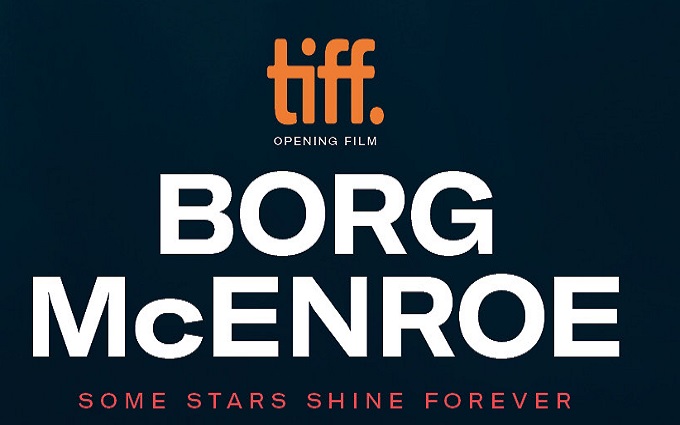
The Plot
Chasing a historic fifth Wimbledon title tennis superstar Bjorn Borg is set on a seemingly inevitable collision course with rising star and notorious bad boy John McEnroe. The pair’s contrasting styles of machine like cool and fiery tempered fury capture the imagination of the world, while off court they both battled similar demons of perfectionism and anxiety.
The Good
Borg McEnroe is a film which takes one of sport’s most iconic rivalries and turns it into a finely crafted examination of two seemingly polar opposite champions. The film follows each of these familiar figures throughout their early lives, offsetting their most famous Wimbledon encounter with the shared pain and passions that brought them both inextricably to the same court.
Shia Labeouf is a near perfect fit for John McEnroe, the infamously flamboyant and often furious tennis superstar. Labeouf is an actor with a raw talent that lends itself well to the role, but it’s also fair to say that his own off screen reputation for eccentric outbursts lends a tangible extra dimension to his performance. It’s hard to imagine another actor more implicitly suited to the role of a gifted talent that is to some extent eclipsed by notoriety, whether deserved or not. However despite drawing some inevitable parallels, Labeouf’s performance is brilliant on its own merits. His McEnroe is by turns explosively competitive and vulnerably fragile, drawing an effective portrait of both McEnroe’s infamous on court persona and the real man behind it.
Sverrir Gudnason does a remarkable job of embodying Bjorn Borg, an awesome and deeply enigmatic sporting great. Much like Labeouf his performance is by turns fuelled by convincing ferocity, self-doubt and stoic determination. Gudnason also works especially well alongside Stellan Skarsgard, exploring the complex emotional relationship between the young superstar and his coaching father figure Lennart Bergelin. Skarsgard on typically fine form gives voice to much of what the film has to say about the true burdens inflicted by ambitious sporting greatness.
Gudnason and Labeouf deserve special praise in particular for their physical feats in recreating the astonishing match play when they do inevitably meet on court. Every move and moment of each piece of tennis action in the film feels utterly real and never anything less than a genuine brutal sporting battle.
Even those audiences that don’t quite feel enthusiastic about tennis encounters in real life will find that with the added layers of drama and tension, seeing this particular match up brought to life on screen is a captivating experience.
The Bad
It’s rare to find a film without fault, but Borg McEnroe could not easily be improved upon. Obviously for some audiences highly familiar with tennis history the film’s closing scenes might have a little less tension, but overall the film does an excellent job of keeping the focus on the inner struggles of two great players, rather than merely recreating one classic on court encounter.
The Ugly Truth
Borg McEnroe is a worthy opening film for this year’s TIFF, easily surpassing sports genre clichés to deliver a finely balanced portrait of two iconic champions. Both leads deserve mighty praise for performances that do justice to the greatness of the tennis titans they portray. Avid tennis fans and the uninitiated alike will both mighty enjoy this captivating biopic.
Review by Russell Nelson
Atomic Blonde Review
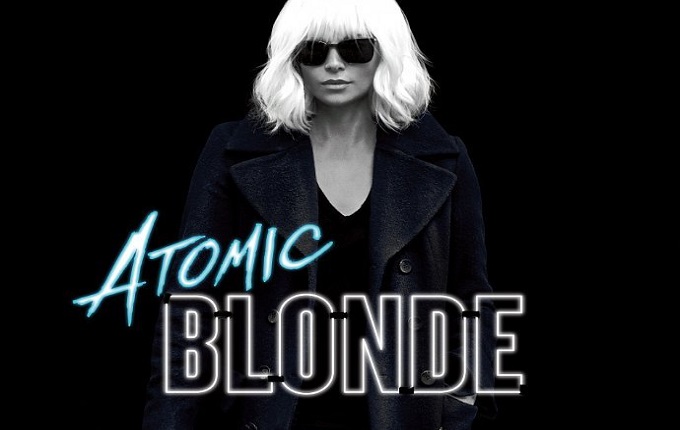
The Plot
As the 1980s and Cold War draws to a bitter close a British agent is dispatched to the murky underworld of Berlin to recover priceless information and track down the identity of a mysterious double agent.
The Good
From its opening scene to its closing moments Atomic Blonde is relentlessly propelled by a catchy soundtrack of deliciously 80s electro beats. This distinctive score combines very well with the grim urban wasteland of cold war torn Berlin and a fun parade of stark 80s fashion to give the film a truly distinctive style. It’s a colourful and chaotic canvas for director David Leitch to work with.
Charlize Theron is perfectly cast as the beautifully deadly British agent ruthlessly fighting her way through Berlin in pursuit of her mission and some more mysterious personal goals. Beneath of bob of bleach blonde hair and wrapped in a monochrome wardrobe, Theron is the epitome of cool. The film does a fine job of crafting an indestructible aura around Theorn and making her a highly credible and memorable action heroine.
A strong supporting cast packed with familiar British stars like Toby Jones, Eddie Marsan and a notably feral James McAvoy lend authenticity to the brutal and banal world of international espionage. The film also frequently injects flashes of dark humour into its regular barrage of blood soaked action. The film wisely eschews melodrama in favour of unashamed mayhem and copious guilty pleasures.
The Bad
Atomic Blonde tries to balance an ambitious combination of brutal action, spy thrills and black comedy. The results are mostly satisfactory but by turns can feel both a little predictable and gratuitous. The John Le Carre-esque spy plot isn’t quite as clever as it attempts to be, while likewise the consistently blood drenched action is well executed but ultimately becomes slightly repetitive.
The film often panders to the mostly male audience it clearly anticipates attracting by flaunting Charlize Theron’s naked charms and even some surprisingly Sapphic sex scenes. While the film’s target market will no doubt welcome some sexy distractions it may be a little less popular among those hoping to turn Theron’s indestructible super-agent into any kind of de facto feminist icon.
Ultimately while the film fuses various elements of films like Taken, John Wick and even Grosse Point Blank it seems unlikely to match their enduring popularity. It will be interesting to see how well the film ultimately survives repeat viewing once it has been robbed of any initial intrigue. The soundtrack and set pieces are fun but the film does lack the sort of memorable dialogue and iconic scenes that seems most necessary for achieving true cult classic status.
The Ugly Truth
Atomic Blonde flirts obviously with cult classic status thanks to a memorably kitsch style and killer soundtrack. Theron is a perfect fit for her femme fatal heroine and her considerable presence may be enough alone to satisfy some fans. Those seeking a more subtle spy thriller should probably look elsewhere though as Leitch’s 80s throwback is more shameless guilty pleasure than anything else.
Review by Russell Nelson